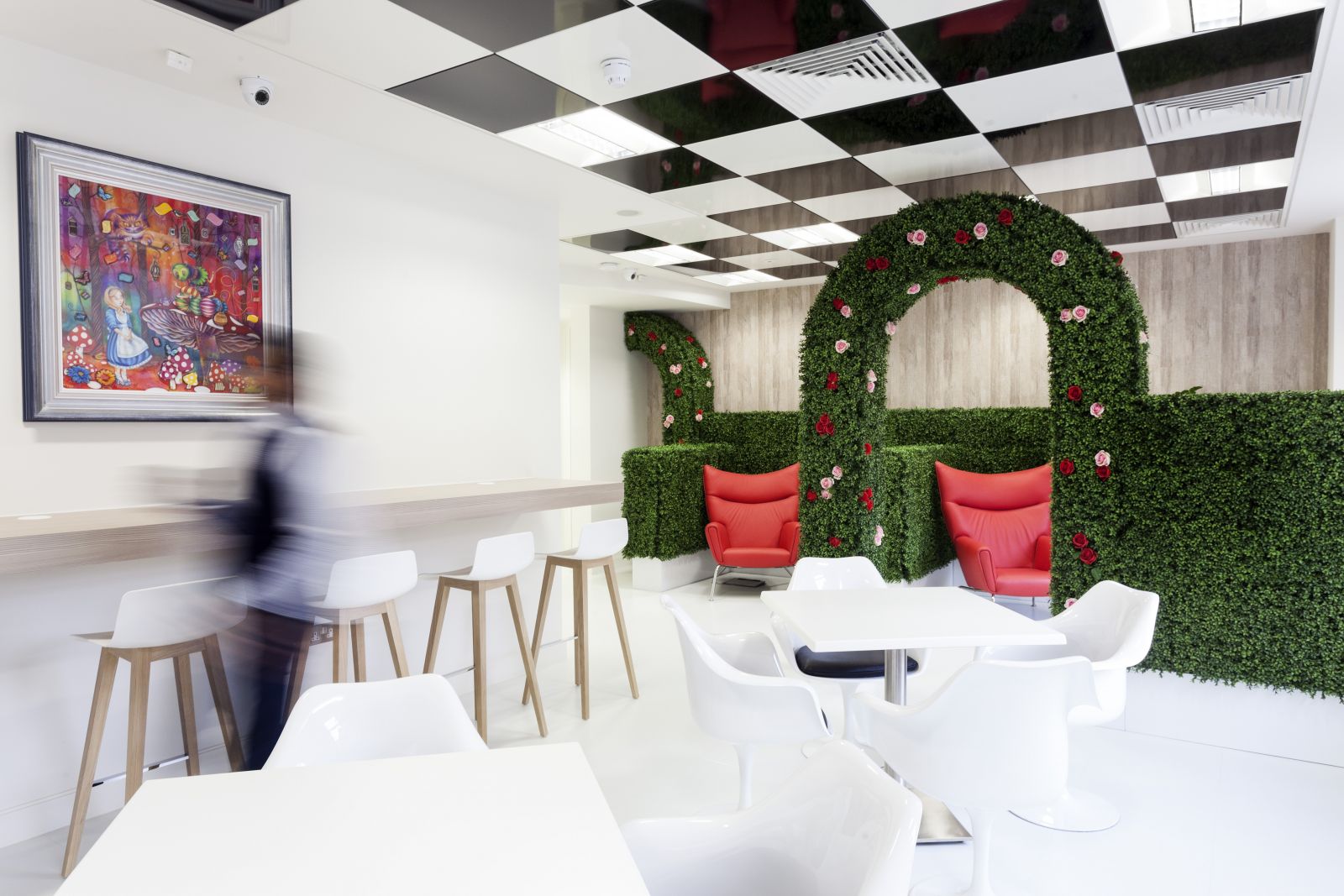Reserving a Serviced Office – The Future of Getting Back to Work?
Flexible office provider Office Space in Town has today launched “OSiT Adjust”, a product which allows their clients to reserve a serviced office space on a...
Read Full Article
Niki Fuchs, Managing Director of Office Space in Town, writes about the "new normal" and prioritising employee wellbeing in the workplace.
Office Space in Town is a serviced office provider which Niki Fuchs co-founded with her brother, Giles Fuchs. Starting in the industry at the age of 21 as a receptionist, Fuchs moved up to Conferencing Assistant, Centre Manager, Operations and Training Manager and eventually Managing Director. In 2009, she launched Office Space in Town, and the company has now grown to seven successful offices in London including Blackfriars, Liverpool Street and Waterloo, and a number of others throughout the UK.
"Any steps undertaken to support virtual socialisation must be coupled with adequate management, where some people can still feel 'invisible' online, exacerbating a sense of loneliness. Any steps undertaken to support socialisation will go a long way in supporting workers as they adjust to life post-COVID."
–Niki Fuchs
Managing Director, Office Space in Town
After a prolonged lockdown, isolation from our family, friends and colleagues and a period of uncertainty for many, it seems to me that there has never been a more important time to mark World Wellbeing Week. In fact, the toll of COVID-19 on our mental health is an issue that has come to the fore recently, with workers reportedly feeling greater loneliness as a result of lockdown, while reports also suggest that anxiety is on the rise.
As lockdown restrictions ease, we may expect wellbeing to improve, but it is vital that we view the protection of our wellbeing as a long-term effort. In fact, many workers were reporting growing stress levels and concerns about their mental wellbeing even before COVID-19. As employers, business owners, landlords or office providers, it is absolutely vital that we play our part in this, creating a safe, social, healthy and more flexible environment for workers in the wake of COVID-19. In adopting these strategies, we can play a role in supporting wellbeing not only the immediate future but the longer term, where every commitment made today can have ongoing benefits for wellbeing tomorrow.
Understandably, workers are anxious about returning to the office in the wake of the pandemic and the health risks that might be involved. Importantly and reassuringly, businesses have been equipped with robust guidance from the government to ensure that any return to work is incredibly safe, but it’s vital that in the immediate term these measures are enforced to the highest standard. Only then, can the workforce feel assured and confident about going back to work.
The changes needed are small but significant. Simple solutions that can be implemented almost immediately include minimising high-frequency touchpoints and introducing one-way footfall systems. Moreover, further cleaning provisions can be put in place, including anti-viral fogging to minimise risk of contamination in the office, keeping teams safe.
By providing guidance to employees on how to correctly use PPE, manage social distancing and look after their mental health, employers and office providers can encourage them to feel safe in their new environment and, in turn, reduce any potential negative impact on wellbeing.
Loss of social interaction has been one of the greatest costs of lockdown, with an inability to spend time with friends, family and colleagues, as well as being denied physical contact, are having serious knock-on effects to wellbeing. are having a serious knock-on effect on wellbeing. In fact, according to the Office for National Statistics, in the first month of lockdown alone around 7.4 million people said their wellbeing was affected by loneliness. It is imperative that, as we begin to leave lockdown restrictions behind, we provide opportunities for people to interact while maintaining their safety.

Picture: A photograph of a meeting area at one of Office Space in Town's sites
Therefore, empowering workers to safely socialise will be critical, whether that’s by providing socially distant common areas, providing screens and other protective barriers, or ongoing support for digital socialisation, such as virtual team quizzes or coffees. Any steps undertaken to support virtual socialisation must be coupled with adequate management, where some people can still feel "invisible" online, exacerbating a sense of loneliness. Any steps undertaken to support socialisation will go a long way in supporting workers as they adjust to life post-COVID.
Pre-COVID-19, offices were already beginning to adopt a variety of health initiatives to support their staff, recognising not only the role this had on their physical health, but also their wellbeing and stress levels. Workspaces must still do their bit to get people moving, even if only virtually. A great example of this can be seen at TotalWellness where they encourage employees to exercise "on the clock" for at least 30 minutes each day at their in-house gym facility. They also offer gym classes twice a week to accommodate those with less experience.
At firms without the luxury of in-house facilities, a greater emphasis on cycling or walking to work and ensuring that the right facilities are available, such as showers or bike racks, can help care for the physical wellbeing of employees. According to a survey by Vitality, physically healthy employees have an equivalent of 30 additional days of productive time each year. It is therefore in the best interest of both workers and employees to boost workplace physical health for the benefit of their wellbeing.
We know that employees who work more flexible hours report higher job satisfaction and reduced stress and fatigue, factors which can lead to loss of focus and, consequently, underperformance. Moreover, flexible working conditions allow employees to play to their strengths (like working in the mornings or afternoons) to ensure maximum output. The benefit to businesses is two-fold, as the costs associated with employee absenteeism and sick leave are reduced, alongside improved retention diminishing the cost of recruitment.
There is no doubt that more flexible working is likely to continue and workplaces can support this by providing more flexible working hours, a variety of spaces, as well as, crucially, the right tech to support a more footloose workforce. Great advances have been made in this area already in order to streamline this process and lockdown has accelerated many trends and innovations that may have taken years to come to fruition. Innovations in cloud computing and teleconferencing, and the ever-progressing mobile device industry have broken down the barriers to entry associated with moving to a more flexible business model.
It will be interesting to see what the future holds for organisations and their employees post-pandemic, but it’s vital that wellbeing remains front of mind. By creating a safe, collaborative environment that promotes health and flexibility, we can make sure that our workforce is a happy one not just during World Wellbeing Week, but well beyond that too.
Picture: A photograph of a reception area in Mayfair, at one of Office Space in Town's sites
Article written by Niki Fuchs | Published 25 June 2020
Flexible office provider Office Space in Town has today launched “OSiT Adjust”, a product which allows their clients to reserve a serviced office space on a...
Read Full ArticleNiki Fuchs, Managing Director of Office Space in Town, writes about the post-Coronavirus workplace landscape, and how remote working has taught us employers should...
Read Full ArticleAs the workplace continues to evolve with new norms and expectations, the question remains: will Gen Z adjust, or be the ones reshaping it? Paul Sherwin from office...
Read Full ArticleGlobal travel brand Skyscanner has a new Edinburgh hub in the heart of Quartermile. The new office spans two floors and 25,000 sq ft of space, and has been completely...
Read Full ArticleMute's new headquarters in Poland is Europe's first office built entirely using a modular system. The project showcases how modular office systems can reduce...
Read Full ArticleA guide to help facilities managers create workspaces for the hybrid working generation has been published by the British Council for Offices. The BCO’s flagship...
Read Full ArticleBW: Workplace Experts has completed the major fit-out of Virgin Media O2’s London headquarters in Paddington, marking the first office space investment since the...
Read Full ArticleTravel search engine Skyscanner’s London office has been refurbished by BW: Workplace Experts. The company occupies two floors of the Ilona Rose building in Soho...
Read Full ArticleA new office building in Southampton Port has been constructed entirely out of converted shipping containers, saving around 40 per cent against the cost of a traditional...
Read Full ArticleA design company has surveyed 2,000 office workers who experience menstruation or menopause to explore how workplace design can better support them. People of...
Read Full Article